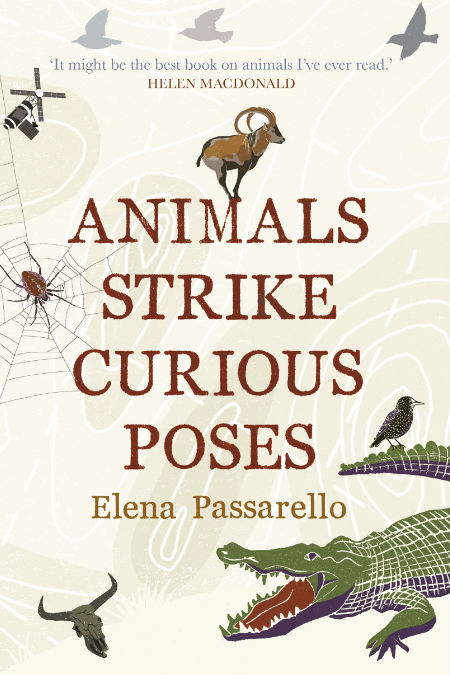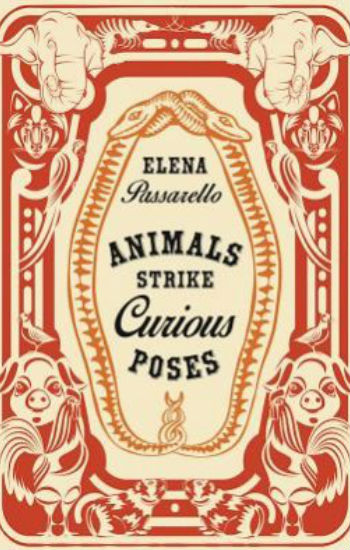
Though humanity likes to wrap its relationship with the natural world in Disney-esque romantic notions of togetherness and interdependence, the harsh reality is that since we first picked up tools and starting altering our environment, we have been doing the animals around us a great disservice.
This has only accelerated since the Industrial Revolution raised up wholesale destruction and technological advancement upon the altar of progress, elevating humanity’s place on the world stage and inevitably consigning animals to the roles of pets, circus curiosities and zoological diversions.
In Elena Passarello’s exquisitely well-wrought collection of essays, Animals Strike Curious Poses, we gain a harrowing and sometimes uplifting understanding of the fraught connections between humanity and the animals with which we share our planet.
Using as a guide a number of iconic animals that have seized the public consciousness for one reason or another, Passarello examines how our primal fascination with the natural world – she contends that the way we interact with animals goes back to before language was added to our cultural armoury when thought and experience reigned supreme – has shaped us as much as we have it.
In doing so, she draws on her experiences growing up, musing on the way about whether even she, an actor, writer and teacher at Oregon State University with a long fascination with animals, really sees them as they are or rather, like many of us, as we would like them to be.
“Along with sensing, and then ignoring, that the unicorn was phony, I also knew it was probably some kind of victim, though even that didn’t deter my pleasure. I could not yet grasp how costly a real animal’s presence in my imagination could be. Of this I am the most ashamed, because I know a version of that ignorance still lives in me. I didn’t grasp, or I refused to consider, what kind of subjection was possible—the various ways humans open up and alter other creatures.” (P. 183)
While this focus may seem dour and oppressive in some ways – we have destroyed things and altered that which we claim to love – it is in fact immensely rewarding to read, suffused as it is with a deep and abiding love of animals that comes through in every poetically-wrought word.
Passarello is rightly regarded as one of the 21st Century’s greatest emerging essayists, someone who can distill complex and intimate notions that may in straightforward narrative hands be oppressive to the point of exhaustion, but which in her gilded, beautifully-articulated way are eminently accessible and far easier to appreciate and take in.
Given the ongoing degradation of the natural world, which we seem to see through some weird twisted God-given dictum to go forth and subjugate the earth come what may, her book is more pressing than ever; however you get the impression that the intent of Animals Strike Curious Poses is not to weigh readers down with polemic conundrums and enervating portrayals of the fallen natural world but rather to get us thinking of how we approach animals and hence the entirety of the environment around us, divorced though we may be from its realities in our modern digital bubble.

To bring about this epiphany, and that is indeed what results in ways big and small by the end of this marvellously thought-through and poetically enunciated book, Passarello takes on journeys through the lives of animals as diverse as Yuka, a 39,000 BP mammoth discovered on the thawing tundra of the Russian steppes, the starling Vogel Staar that supposedly inspired Mozart to even greater heights of genius musical virtuosity and Arabella, a small cross spider that succeeded in taming the demands of zero gravity far faster and more completely than the humans who placed her aboard Skylab in 1973.
Drawing on evidence that Yuka was hunted to her final resting place by a warrior intent on a kill, Passarello imagines what her final moments must have been like, even as she examines how her modern-day discoverer and his friends viewed her body, as a timeless artifact that was less animal that representative of a time long ago that we even now struggle to articulate a full understanding of and which evades any kind of fulsome appreciation.
With Vogal Staar and Mozart, we are gifted with a stunningly moving portrait of how a diminutive starling, a species of bird known for its complex aerial displays and loyalty and faithfulness that some have compared to dogs, may have driven a man already known for his immense talent and grasp of what musically moves us, to create over 60 new pieces of music in the time the two were together.
“Mozart turns to the bird, which moves closer to the front of the cage and stares. Starlings are more responsive to human eye contact than mammalian pets; they know when they’re being watched and aren’t afraid to hold a gaze. It’s one of the primary traits—along with a high touch response—that allows deep bonding between starlings and humans, as we love eye contact, too. One ornithologist called the starling ‘the poor man’s dog’ for its ability to connect and demonstrate loyalty. And sound assists this connection; what better way to bond than in a duet?” (P. 78)
Possibly one of the most astounding tales is that of Arabella, a tiny spider that, with her dogged determination to spin a web in an utterly alien environment, won the hearts of not just the three highly-professional astronauts who accompanied her on the Skylab mission but the entire population of the United States and likely the world.
These three stories, along with countless other absorbing tales that demonstrate not simply Passarello’s broad and deep knowledge of the natural world but also her considerable love for it too and willingness to be honest about how she interprets it, carry along on a meditative journey into the natural world (and the many fascinating and esoteric ways it intersects with the man-made world; these seemingly divergent elements are drawn into Passarello’s essays with breathtaking ease and elegance).
It’s a world that exists utterly independent of people in certain ways – although the author does touch on how we and animals were once intimately connected prior to the march of industralisation which rent us apart – and yet which has always been interpreted in ways that suited us more so than the subjects of our fascination.
As ruminations on the links between humanity and the natural world go, Animals Strike Curious Poses, is a singularly superlative achievement, one that illuminates the immense beauty and diversity of the natural world, documents how we have impinged upon it, and asks us indirectly to reconsider the nature of that engagement, all delivered with prose so clever, poetic and imaginative that you can’t help be drawn, in life-changing ways, into each and every essay in the collection.